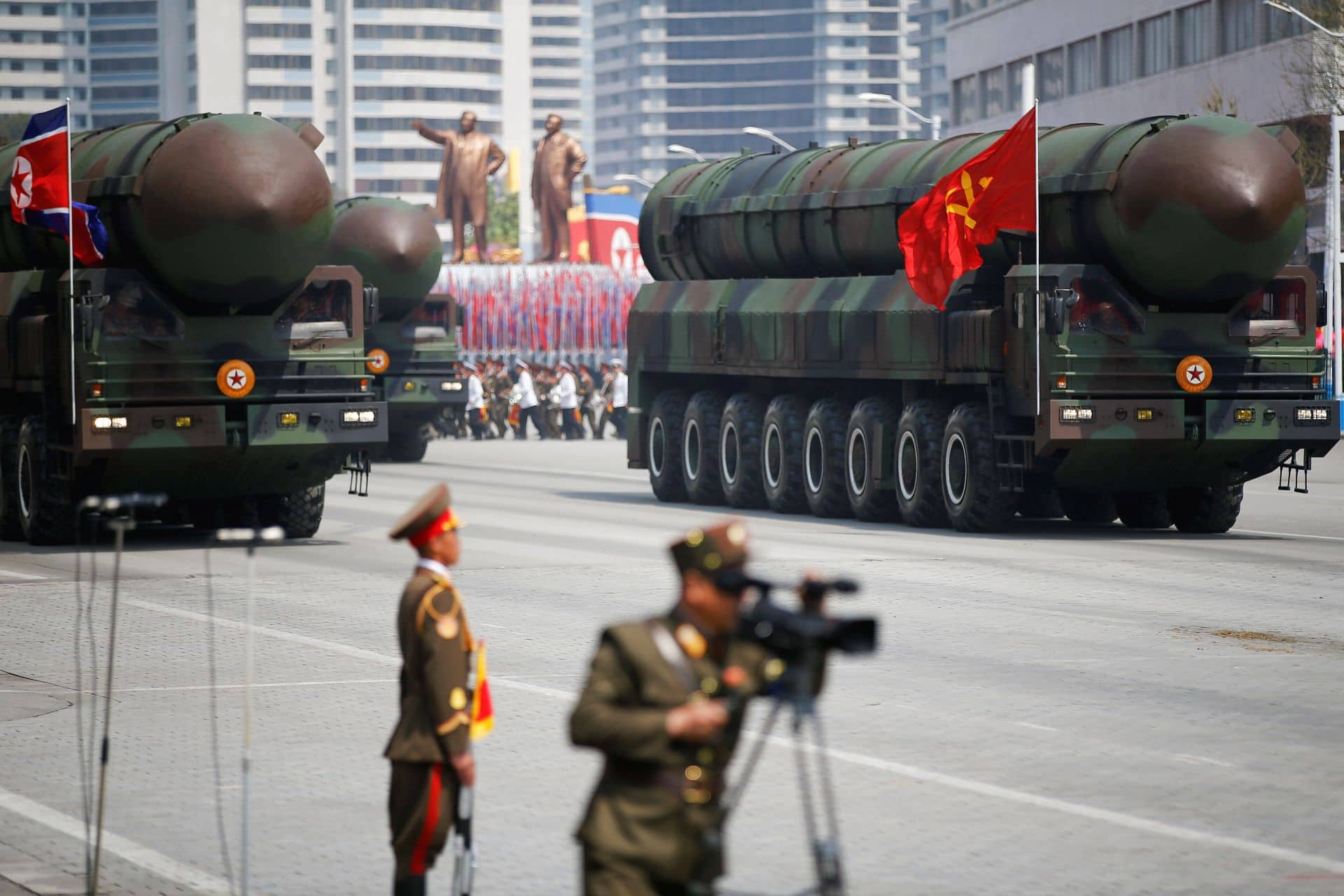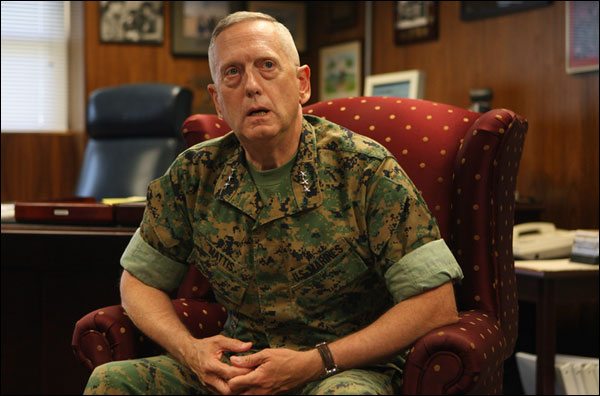The United States slammed North Korea’s latest missile test as a provocation and insisted Sunday it is working closely with China to resolve a crisis that Washington sees as reaching a critical stage.
Amid broader fears that North Korea may again test a nuclear bomb, the Pentagon said Sunday’s missile launch was a failure, with the weapon blowing up almost immediately after its early morning takeoff near Sinpo on North Korea’s east coast.
Following the test, US National Security Adviser H.R. McMaster told ABC News: “There’s an international consensus now — including the Chinese and the Chinese leadership — that this is a situation that just can’t continue.”
Amid sharply heightened tensions, McMaster said the US and allies were studying all actions “short of a military option,” though the Trump administration has not ruled that out.
North Korea watchers remained on high alert, as leader Kim Jong-un was reportedly poised to conduct a sixth nuclear test.
Vice President Mike Pence, who arrived in Seoul on Sunday, assailed the missile test as a “provocation” and assured South Korea of Washington’s full support against the threat from its volatile neighbor.
Pence is in Seoul for talks on curbing the North’s weapons programs.
“This morning’s provocation from the North is just the latest reminder of the risks each one of you face each and every day in the defense of the freedom of the people of South Korea and the defense of America in this part of the world,” Pence told US military families at an Easter dinner, at the start of a 10-day Asia tour.
Some 28,500 US troops are stationed in South Korea.
President Donald Trump has ordered a naval strike group, led by the USS Carl Vinson aircraft carrier, to the region, though the vessels remain a long way from the peninsula.
McMaster repeatedly stated that China — North Korea’s key ally — is increasingly concerned about the reclusive communist state’s behavior.
The new consensus is “that this problem is coming to a head. And so it’s time for us to undertake all actions we can, short of a military option, to try to resolve this peacefully,” McMaster said.
Trump turned to Twitter to underscore the importance of cooperation with China on North Korea.
Having blasted Beijing throughout his presidential campaign for unfairly manipulating its currency, he tweeted Sunday: “Why would I call China a currency manipulator when they are working with us on the North Korean problem? We will see what happens!”
‘A threat to all people
McMaster said Trump had directed US military, diplomatic and intelligence officials to provide him with options — in concertation with regional allies including China — that could be used “if the North Korea regime refuses to denuclearize.”
He called Kim “a threat to all people in the region, and globally as well,” but cautioned that Trump “is clearly comfortable making tough decisions.”
A White House foreign policy adviser, briefing reporters on the plane that carried Pence to Seoul, was asked what steps China had committed to when President Xi Jinping met recently with Trump in Florida.
“There were a number of steps that were discussed,” the briefer said on condition of anonymity, adding that when China recently turned back ships bringing North Korean coal, it was a “good first step.”
“China is the key,” Senator John McCain, chairman of the Senate Armed Services Committee, said Sunday on NBC.
“They can stop this if they want to because of their control over the North Korean economy.”
‘Medium-range’ missile test
Congressman Mac Thornberry, McCain’s counterpart in the House of Representatives, said Kim’s message to the United States was “we are strong and we can hurt you.”
“This guy (Kim) is not interested in negotiation. He wants to have an (intercontinental) ballistic missile with a nuclear warhead to threaten us, and I think he’s determined to get it. Even failed launches tell them something and improve their program,” Thornberry told Fox News Sunday.
Trump has repeatedly said he will prevent Pyongyang from developing a nuclear-tipped ballistic missile capable of reaching the mainland United States.
The latest missile launch came a day after Pyongyang staged a massive military parade, showcasing nearly 60 missiles — including a suspected new ICBM.
But the missile involved in the failed test evidently was smaller. The briefer on Pence’s plane called it “medium-range.”
US Defense Secretary Jim Mattis said Trump was aware of the failed test but had “no further comment.”
North Korea has often test-fired missiles to mark major dates such as Saturday’s 105th anniversary of the birth of the nation’s founder Kim Il-Sung, or as gestures of defiance when top US officials visit the region.
South Korea’s foreign ministry said that by conducting the latest test just a day after displaying a series of missiles, “North Korea has threatened the whole world.”











